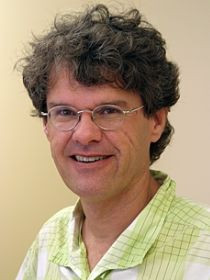Connect with Christopher
About Christopher
Klyza’s area of expertise is U.S. conservation and environmental policy. More specifically, he focuses on understanding recent environmental policy at the national level across institutions (e.g., given gridlock in Congress, how has climate change policy been advanced through executive politics, judicial politics, and the states?). He also focuses on the changing cultural and natural history in Vermont, and how these changes affect the landscape. He is on the board of directors of two local conservation organizations based in Bristol, VT: The Watershed Center and Vermont Family Forests.
Contributions
Beyond Gridlock in American Environmental Policy
Key Findings Brief,
In the News
Opinion: "Congress Should Not Give Away Our Public Lands," Christopher McGrory Klyza, Sun Sentinel, February 10, 2017.
Interviewed in The Story of Vermont (with ) March 16, 2015.
Interviewed in "Middlebury Professors' Book Explores Vermont's Changing Landscape," (with ) Addison Independent, February 23, 2015.
Interviewed in "Vermont Edition: The Story of Vermont ," (with ) Vermont Public Radio, February 3, 2015.
Quoted by in "Political Environment: Earth Put on Back Burner," Burlington Free Press, September 26, 2010.
Opinion: "Some Questions about Burning Wood," Christopher McGrory Klyza, Rutland Herald, July 14, 2010.
Quoted by in "Vermont’s Green Front," E-The Environmental Magazine, May/June 2010.
Quoted by in "A Centennial for Our Forests," Wilderness, 2010-2011.
Publications
"The Story of Vermont: A Natural and Cultural History, 2nd Edition " (with ) (University Press of New England, 2015).
Examines how geological, biological, and cultural forces have shaped the Vermont landscape, and, in turn, how the biological and physical landscape of Vermont has shaped the humans living there.
"American Environmental Policy: Beyond Gridlock" (with ) (MIT Press, 2013).
Argues that despite congressional gridlock on environmental policy since 1990, policymaking has flourished on other pathways: appropriations and budget politics, executive politics, judicial politics, states, and collaboration.
"Beyond Gridlock: Green Drift in American Environmental Policymaking" (with ). Political Science Quarterly 125, no. 3 (2010): 443-463.
Argues that the combination of the “green state” (existing environmental laws, institutions, and expectations developed over time) and congressional gridlock have led environmental policy to move in the direction favored by environmentalists over the last several decades. The thesis is illustrated by brief cases on reducing mercury air pollution and altering management of the Columbia River.
"The Greening of Social Capital: An Examination of Land-Based Groups in Two Vermont Counties" (with ). Rural Sociology 70, no. 1 (2005): 113-131.
Reveals that land-based groups are significantly undercounted using IRS and Secretary of State data. Argues that these groups demonstrate a significant “greening” of social capital in Vermont, and perhaps beyond.
Wilderness Comes Home: Rewilding the Northeast (University Press of New England, 1999).
Includes a series of essays discussing opportunities for restoring and expanding wildlands throughout the northeastern United States. It features an epilogue by Bill McKibben.
"Who Controls Public Lands? Mining, Forestry, and Grazing Policies, 1870-1990" (University of North Carolina Press, 1996).
Argues that public lands policies have been fundamentally shaped by resilient ideas institutionalized at the time these policy regimes began (ca. 1872, 1900, 1934).
